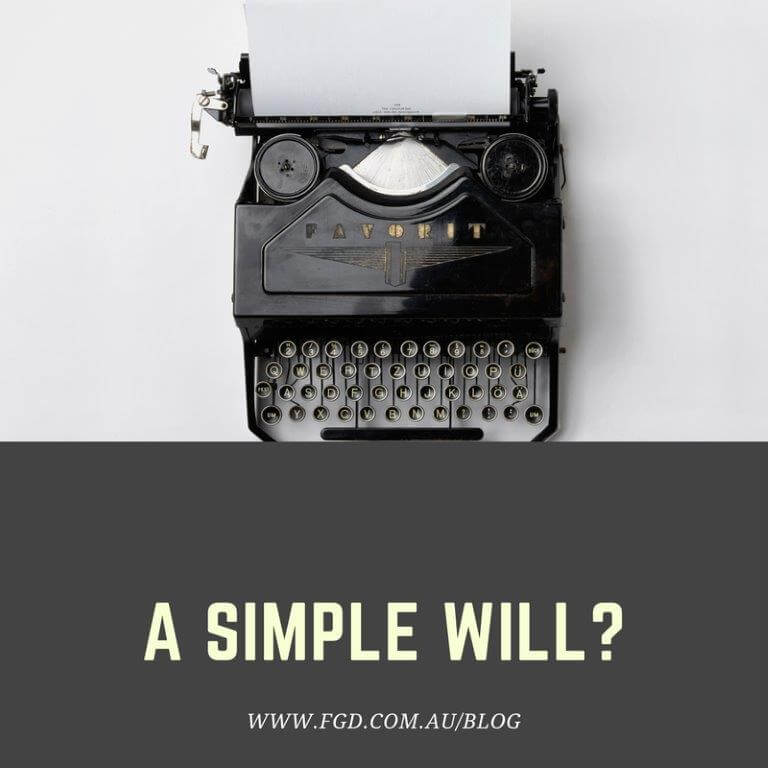
Back in 2014, we were told that the Australian Capital Territory had the highest divorce rate in Australia, with the average marriage in the Territory lasting 13.6 years.
Now however, we’re told that according to Census data, the ACT has the lowest separation rate of the states and equal second place for the lowest divorce rate. Whatever the statistics, divorce remains a reality for many. But divorce doesn’t mean singledom; nowadays many people have more than one long-term partner during their lifetime.
Back in the days of “mum, dad and the kids”, estate planning was fairly straight forward. These days, with “blended families” it is important to understand what happens to your assets when you die and the likelihood and effect of potential challenges to your Will.
The starting point for any estate plan is knowing what your Estate comprises because there are certain assets that may or may not pass through your Will depending on how you hold your assets and where you hold them, among other things
For example, any joint bank accounts you have will go directly to the surviving account holder. Assets held in New South Wales should also be looked at with care given the application of “notional estate” provisions in this State.
It is also important to know what your family tree looks like. The family dynamic in a blended family can create inter-family conflict which can increase the likelihood of someone challenging your Will.
A challenge to your Will can be made upon your death by an ‘eligible person’. It is important to explore who might be an ‘eligible person’ in your circumstances so that you can reduce the likelihood of a successful claim being made.
The test for the Court in determining whether or not an Order for further provision from the Estate should be made to an eligible person challenging a Will is whether or not that person has received “adequate provision for the proper maintenance, education or advancement in life”.
It is important to be advised about what may and may not be considered to be adequate provision for persons who are eligible to challenge your Will.
An order for the further provision from your Estate is dependent on a number of criteria. To name a few criteria used in the ACT, these include the nature and duration of your relationship with that person, any physical or mental incapacity they have (or that you have, in the event that the person was a carer for you during your lifetime) and any contributions the person has made to your Estate assets.
And don’t think that if you are part of a happily married couple that estate planning isn’t also important for you. Did you know that marrying revokes any previous Will or testamentary act? In the event that you die without a Will, the intestacy laws of the State or Territory in which you were living (or hold the majority of your Estate in) will apply.
Unfortunately estate planning is something that not enough people turn their minds to. In a time where blended families are on the rise, there is no such a thing as a basic Will anymore.
To get some tailored advice about your estate plan, go ahead and contact one of our estate planning lawyers today.
This post was originally published in 2016 and has been updated as at 10 July 2017.
Read more about Wills and Estate Planning

Courtney Mullen is a lawyer specialising in Family Law and Estate Planning at Farrar Gesini Dunn